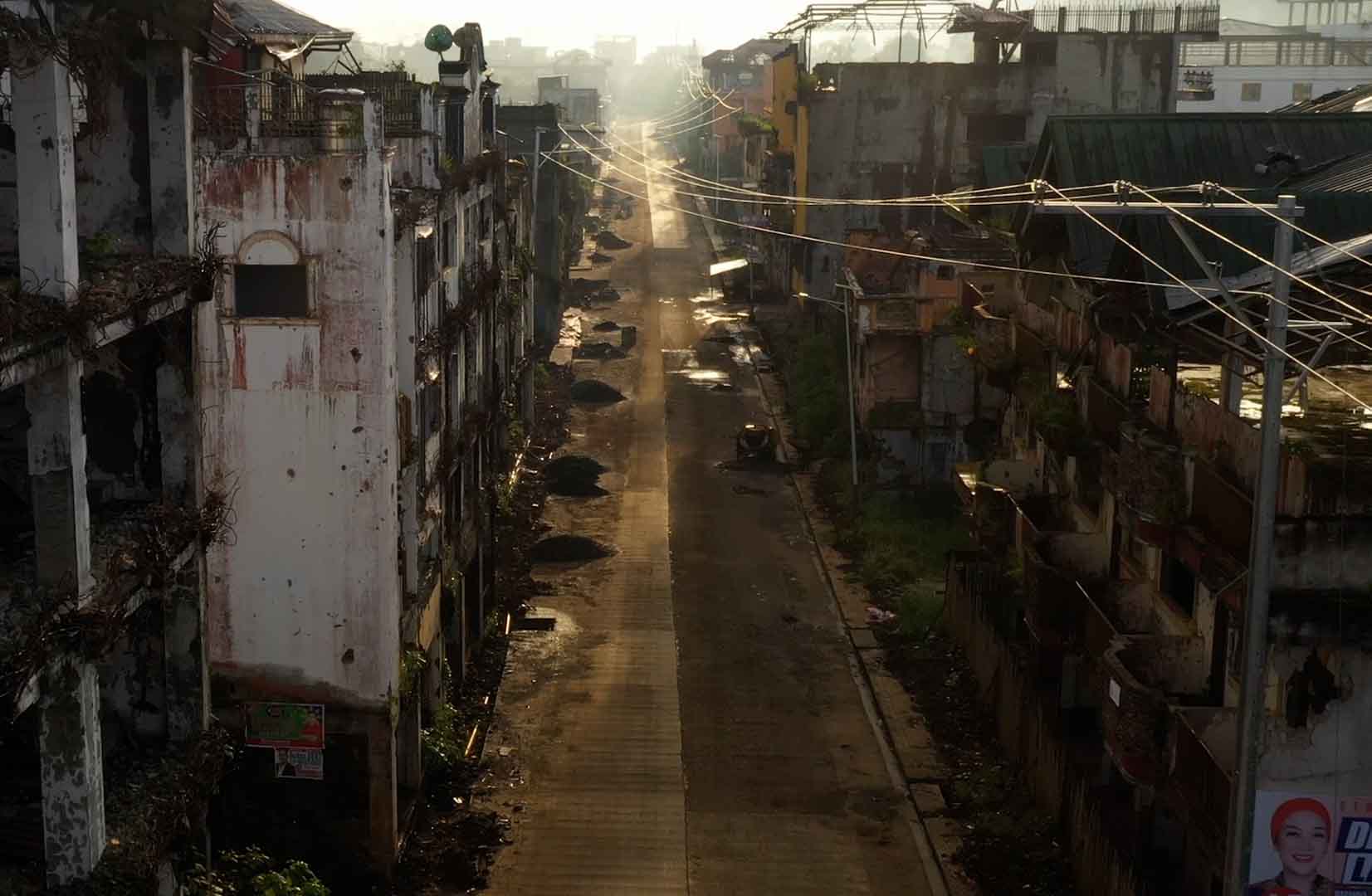In May 2017, government forces began a fierce siege of Marawi, a provincial capital on the island of Mindanao in the Philippines. It took five months of heavy shelling and street-by-street fighting to root out Maute rebels linked to so-called Islamic State, at the cost of more than 1,000 lives and of displacing some 360,000 people.
With much of the city completely destroyed and riddled with explosive ordnance, 98% of the population had to evacuate. They were promised compensation and reconstruction, but almost six years later few have received money and the city remains a ghost town.
President Ferdinand Marcos Jr. finally named members of the compensation board at the end of January 2023, but less than 1% of the 17,793 displaced households have seen their homes rebuilt, even as big infrastructure projects have gone ahead.
Travelling to Marawi in mid-2022, filmmaker Frederick Gillingham found hundreds of families still in temporary accommodation and transitory shelters, with many potential returnees facing long ownership disputes due to their lack of title deeds. Most couldn’t afford rebuilding permits, while others were frightened to proceed in case the promised compensation never came.
His short film exposes the harsh realities those still-marooned outside their home city face, and explores how survivors and former fighters are trying to co-exist in difficult economic circumstances years after the longest urban battle in the Philippines’ history.
